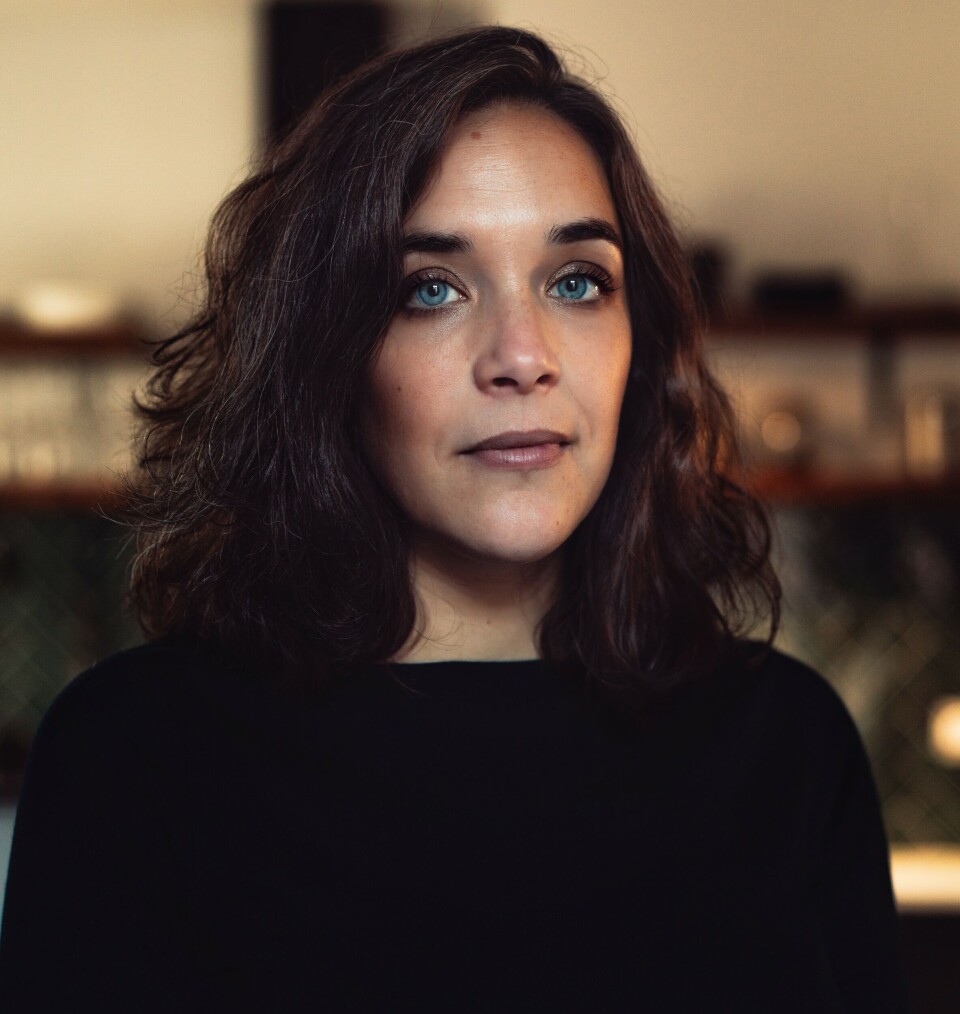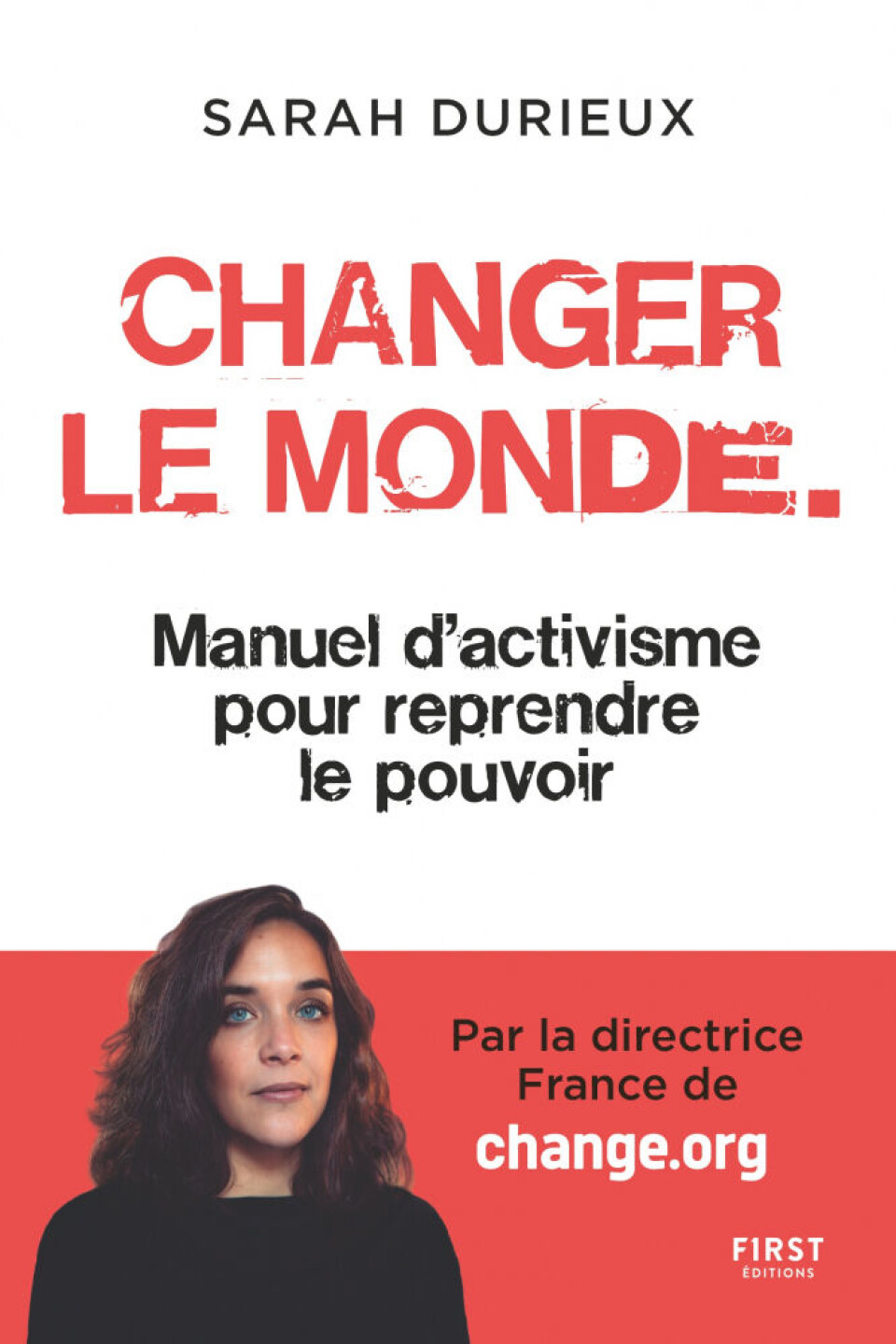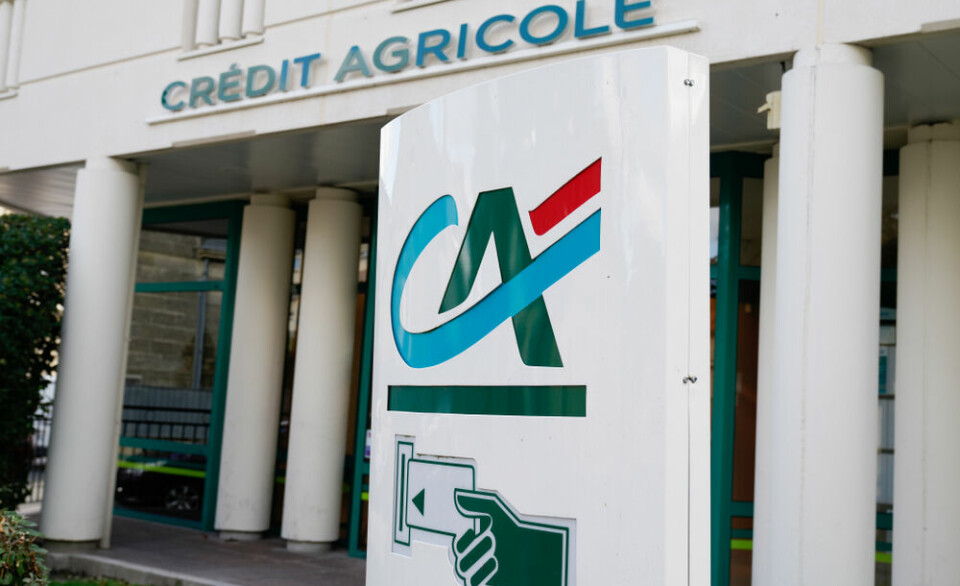-
Interview: health fee for Americans on 'visitor' visas is ‘only fair’, says French politician behind plan
Liv Rowland talks to the man who made proposal to introduce new minimum health charge for foreign non-workers who come on long-stay visas, François Gernigon
-
‘The first baby hedgehog we rescued was love-at-first-sight’
We speak to an expert about her hedgehog health centre and how to make your garden more hedgehog-friendly
-
How Verteillac's mayor revived a French village through community engagement
Connexion meets Régis Defraye, a Dordogne mayor who has brought a dying village to life using collaboration and apolitical thinking
The campaigner who is changing the world - one petition at a time
Change.org director Sarah Durieux talks about giving power to the people and choosing your battles

If you have signed an online petition you are likely to have done so via Change.org – which was founded in 2007 in America and opened an office in Paris in 2012.
There are now more than 13 million members in France who have signed petitions. Sarah Durieux is the firm’s director. She has just written a book, Changer le monde: Manuel d’activisme pour reprendre le pouvoir.
What drives you to help ordinary people in this way?
I have worked in charities like WWF and Fondation Nicolas Hulot and love working in organisations which make an impact. A friend heard about Change.org and said it was perfect for me.
I loved this idea of creating a platform to help people fight for what they believe is right and empowering them to make the change they want to see. I still enjoy it eight years later.
Do petitions really change things?
We have multiple examples of successful campaigns that started on our platform.
One example is the recent case of Stéphane Ravacley. He was the baker in Besançon who employed a young refugee, Laye Fodé Traoréiné as an apprentice, but when he turned 18, because of our regulations, he was supposed to be deported. For Stéphane this seemed unfair. So he started a campaign against his deportation.
This example, is a good one, not only because he won, but because it is very typical of the kind of campaign we see on Change.org.
They are often about local or individual issues which are also an example of a broader concern we are facing in our country. Since Stéphane’s campaign, 10 other petitions have been started by other artisans saying they want their refugee apprentices to stay. On Change.org there is both an individual impact, and then a wider conversation is created.
Another example you may have heard about is the story of Jacqueline Sauvage who suffered extreme domestic violence for many, many years and who killed her husband and was then released from prison and given a pardon by President François Hollande following a big campaign that happened on the site.
We now pay the lower 5.5% VAT rate on sanitary products because of a campaign in 2014, asking to consider those products as a basic necessity.
But how does a petition with a certain number of signatures, actually change things?
It works by public pressure. There is no procedural outcome to a petition with a set number to change the law.
They raise an issue and when it is directed at the right person with enough strength, this person will feel pressured to take action.
It could be a mayor, a politician, or a company. It is all about creating a conversation and putting pressure on a decision maker so they will at least listen and hopefully take action.
Is media coverage of the petitions important?
Absolutely. It is one of the prime drivers of campaign success.
We actively work with different media to tell them about the stories we are campaigning for on Change.org because we know this will help for two reasons.
One, it helps gather more support. If you read about a petition in a newspaper or see it on the television, you might sign it.Then, if a petition in your region is published in the regional paper, maybe the prefect will pay more attention than if no-one is talking about it.
How did the petition work in the example of the baker and the refugee apprentice?
Deportment papers are issued by departmental prefects, so Stéphane Ravacley began by addressing his local prefect with his petition. He also said if he didn’t get a positive answer in five days he would start a hunger strike.
He began to get a lot of support from other bakers across France who posted pictures of themselves on social media with signs saying Support Stéphane Ravacley. So it started to be big.
It was then picked up by European MP Raphaël Glucksmann because it was in line with his policy of creating a different France, which welcomes foreigners and particularly refugees and they began to push the campaign.
It became a huge media story and Mr Glucksmann sent letters to the President and the Minister of the Interior.
The prefect works for the Minister of the Interior and so we can only imagine that this national pressure had an impact on the prefect, who changed his mind and allowed Laye to stay.
It is beautiful to see how this baker, started a campaign on his own but gradually gained support from his peers and then from national representatives to win the campaign.
Do you believe this means ordinary people, not necessarily interested in politics can have a chance to make a difference?
Most people who start on Change.org are not linked to any political group, or even an association. They are concerned and affected by an issue and they want to resolve it. We are showing people they can take part in civic action, even if they are not part of a political party. I think this is important in the context we are in, when many people do not trust political parties and other powers.
I receive several emails a week asking me to sign petitions for Change.org and I wonder if the fact it is so easy to sign weakens the value of the petitions?
This is a huge debate I always have with people.
A petition needs other action to make it successful and we recognise we need to work to get people to go from signing to commit further to a campaign.
But signing a petition is a good start and I think we should rejoice in the fact it is easy. It is a real opportunity to get people engaged who would not otherwise be able to do so.
For example, parents find it difficult to have enough time to march on the streets, and many are afraid to go with their children because of examples of police repression that have happened.
If you are disabled, it is good to have a way to voice your opinion from your house. And we have a country with huge rural areas where many people are isolated and a way for them to take action is online.
Our culture says you have to struggle to make change. But you don’t necessarily have to go on the streets for five hours in the rain to demonstrate your opinion.
Everything is valuable. The important thing is will it have an impact. And if it is easy and it has impact that is great and means more people can participate.
Do you think there are a lot of people with grievances right now who want to change the world?
When I was hired there were 60,000 users in France and today there are 13 million. I don’t think that is because we are amazing, but because there is a democratic crisis as well as an economic, social and now a health crisis.
But I am hopeful. I think this commitment to participation on Change.org is a good sign, but also I think it is important we recognise that it comes from a place of frustration and we need to address that, as a country.
But I could just sign all of them, whether I really care about the issue or not?
But you could go on any march whether you cared about it or not. When you sign a petition you have to put your name to something which matters, which is more of a commitment than putting a like, or a comment on a Facebook page. And would you really put your name to everything?
Do you think Change.org is changing the world for the better?
I hope so. I am happy that we are giving people who feel they are completely disenfranchised a way to participate and to regain power not only collectively but individually, within themselves.
Empowerment is not only how do I change the world, but also how do I see myself, how do I feel – do I have worth in society and am I really part of it?
Perhaps I am a bit philosophical but for me activism is not just signing a petition or marching in the street, but how do you see yourself in society.
So I think at least Change.org has an impact on that. It makes people feel part of a community and I think that is very important at the moment.
Are there any themes more popular than others for petitions?
Recently, there have been a lot of topics around Covid-19, as people are struggling to live with the pandemic.
In the last 12 months, number one was health, second was animal rights, then economic justice which concerns financial insecurity, employment etc., then human rights and then environment. These are the numbers in terms of signatures.
How many campaigns do you have online at any one time?
At the moment we have about 1,000 new petitions a month in France and they will stay online as long as the person wants to keep it there. 2020 was different as there were so many petitions due to Covid-19 and at the beginning of the pandemic we had 3,000 every month.
How many of those do you think are successful?
It is very difficult to measure. In France about 100 petitions declare victory every month.
What advice would you give to anyone who wants to start a campaign?
I have written a book (Changer le monde: Manuel d’activisme pour reprendre le pouvoir, Publisher First €14.95) to encourage people to take civic action with lots of ideas on how to start.

The first thing is to choose your battle. You cannot solve everything. Just think about what is really close to your heart. Often it can be something affecting your family or close friend. Success often comes to the campaigns where the person feels really strongly about the fight they are getting into.
Then you must define what you want to change and exactly what you want to ask. Instead of saying you don’t want animals to suffer, you have to ask, what is the first rock you are going to move. So maybe you look at your town and see what difference you can make there.
You don’t need to start changing the whole world all at once, but think about changing your world. You start small but you aim big. You are ambitious, but you also know where to start and both are important. I think the team in the UK puts it very well. They say what is the little big thing you can do.
Do you think more people are realising they can make a difference?
I really do. I did an interview on Facebook recently and I talked about Stéphane Ravacley.
In the comments, lots of people said they had signed the petition and said it is great, we won, we did it. Every day, I see how those people who are participating in civic action feel rewarded by the action they have taken and the feeling that they have some power in society. So people just need to start experiencing it.
Related stories
Meet one of France's last on-site lighthouse keepers
Meet the Englishman whose litter selfie kick-started a new career
























